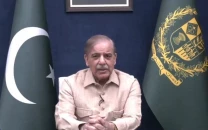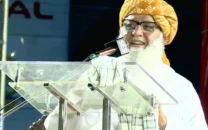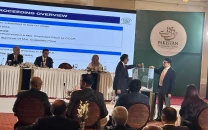The Khan Sahib ministry dismissal
I don't doubt ML was more popular in NWFP at the time & an ML ministry was inevitable, my qualm is with the procedure.

The writer is the Chairperson of the History Department at Forman Christian College, Lahore
In the provincial elections of 1946 in the erstwhile NWFP, the Congress won 19 Muslim seats and 11 non-Muslim seats. Its ally, the Jamiat Ulema-e-Hind won a further two seats. The Muslim League won 17 Muslim seats and the Akalis won one seat. Therefore, Khan Sahib, who not only had a clear majority in the assembly, but had also won more Muslim seats than the Muslim League, formed the government.
While it is true that Khan Sahib put himself in a difficult moral position by stating that he will resign in the event of the Muslim League winning the Pakistan referendum, and then backtracked on it later, one must also remember that the Congress did indeed boycott the referendum. Therefore, leaving the fate of the ministry to the party, rather than his whim, is not as immoral as some have suggested. As a matter of fact, it might just be that the premier, rather than arbitrarily deciding the fate of the ministry, wanted the party which he represented to take a decision of this magnitude.
Now to the dismissal itself: Jinnah had asked Lord Mountbatten to dismiss the Congress ministry in the NWFP before independence, but even though Mountbatten agreed, Westminster overruled him arguing that neither had the constitutional machinery of the province broken down, nor had the Congress party lost its majority in the legislature — hence the ministry remained. After independence, Jinnah instructed the governor, Sir George Cunningham, to dismiss the Congress ministry and replace it with a Muslim League one. Interestingly, section 51(5) (the section under which the ministry was dismissed) was inserted by Mountbatten on the advice of Jinnah to bring the governors clearly under the thumb of the governor general.
Now, the supporters of the dismissal would argue that with independence, the 12 non-Muslim members of the assembly spontaneously combusted, which was verifiable in a mere week, and therefore, the Congress ministry had lost its majority. However, even without the 12 non-Muslim members being counted, the Congress still had 19 Muslim seats in a house of now 38, exactly 50 per cent, and with the Jamiat members, it had a clear majority. Therefore, the Congress was still not a minority, even if one accepts the highly tenuous argument that the non-Muslim members simply fled immediately and that it was verified, etc. and all legal procedures were followed to declare their seats empty.
Furthermore, supporters of the dismissal would claim that the Muslim League did indeed prove its majority in the legislature. This is true, but this majority was only proven in March 1948 at the budget session, six months after the installation of the League ministry. Now, it is not hard to imagine how a party can manoeuvre a majority when it is given official support and six months to muster it. No wonder several Congress legislators defected to the Muslim League, in what we now call, “horse-trading”.
In the end, I want to reiterate that I do not doubt that the Muslim League was, perhaps, more popular in the NWFP at that time, and that in time, a Muslim League ministry was inevitable. My only qualm is with the procedure which left a precedent. Let me end by quoting distinguished historian Khalid bin Sayeed on this: “Even if the League circles doubted the sincerity of Khan Sahib’s professions of loyalty, they could have asked the Frontier Provincial League leader, Qaiyum Khan, to produce a majority in the assembly and move a motion of no-confidence ... Such a course of action would have clearly saved the central government from resorting to reserve powers and thereby creating a precedence ... [It] was surely open to the central government to direct the governor to dissolve the provincial assembly and to hold fresh elections. The precedent of dismissing a ministry which had a majority and then commissioning another man to form a ministry in the hope that the latter would soon be in a position to produce a majority was bound to lead to political instability ... .”
Published in The Express Tribune, April 2nd, 2013.



















COMMENTS
Comments are moderated and generally will be posted if they are on-topic and not abusive.
For more information, please see our Comments FAQ